Sign up for trending news and first dibs
Singapore’s esports Scene Just Got Bigger, Here’s Why
Singapore’s esports Scene Just Got Bigger, Here’s Why
For almost every video game title that’s got an esports tournament attached to it (think Overwatch, Dota 2 and Street Fighter V), there’s at least one Singaporean gamer who’s ranked among the very top.
By Daniel Loy
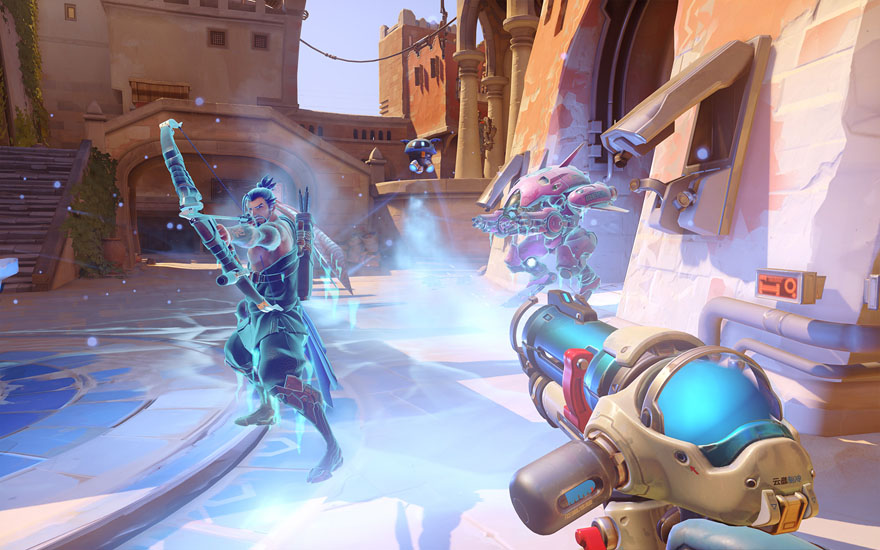
Overwatch has garnered over 20 million players just six months after its release
Singapore’s competitive gaming scene is gaining momentum, with new and old gamers making their mark on esports tournaments at home and abroad.
They are repping one of the hottest games at the moment — Blizzard’s Overwatch, a multiplayer first-person-shooter that has over 15 million players at last count. The Overwatch World Cup, which features 16 teams from all around the world battling it out before the top eight make it to the playoffs at Blizzard’s BlizzCon gaming convention, saw Singapore making up one of the six teams representing the Asia Pacific region in the playoffs.
On a smaller scale, the annual Singapore Toy, Game and Comic Convention saw its first Overwatch tournament as well. Gaming convention GameStart 2016 also held its Overwatch Champions Singapore PC Tournament for enthusiasts to duke it out.
But Overwatch isn’t the only game garnering attention. Singapore also fielded its own five-man team for Counterstrike: Global Offensive at the recent The World Championships, where they became the only Asian country to reach the quarterfinals.
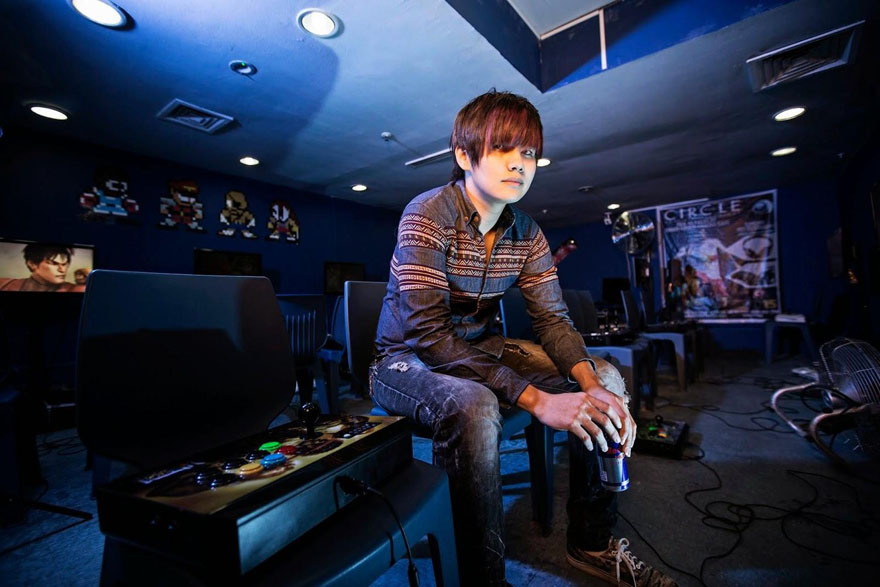
Ho Kun Xian aka “Xian” has made his mark in international Street Fighter tournaments (Photo: Red Bull Content Pool)
Individuals have been putting in the work too. Arguably the biggest name among them is Ho Kun Xian (known as “Xian” in gaming circles), a professional Street Fighter gamer who won the EVO tournament in 2013 and continues to make his presence felt in Street Fighter competitions.
What it takes to be an esports athlete
While games have become increasingly complex, Singapore gamers’ skillsets have risen to match up to global standards. This has seen its esports achievements on the incline.
But beyond having a strong grasp of the game, what else is necessary to become a professional gamer? According to Eugene Tay, founder of professional esports team NUT (“No Use Talking”), mental fortitude and the right attitude are necessary when embarking on a career in esports.
“The amount of dedication and hard work aspiring players need to put in has remained the same, maybe more now that the scene has grown,” he said. “As well, there still exists the time and societal pressures placed upon players.”
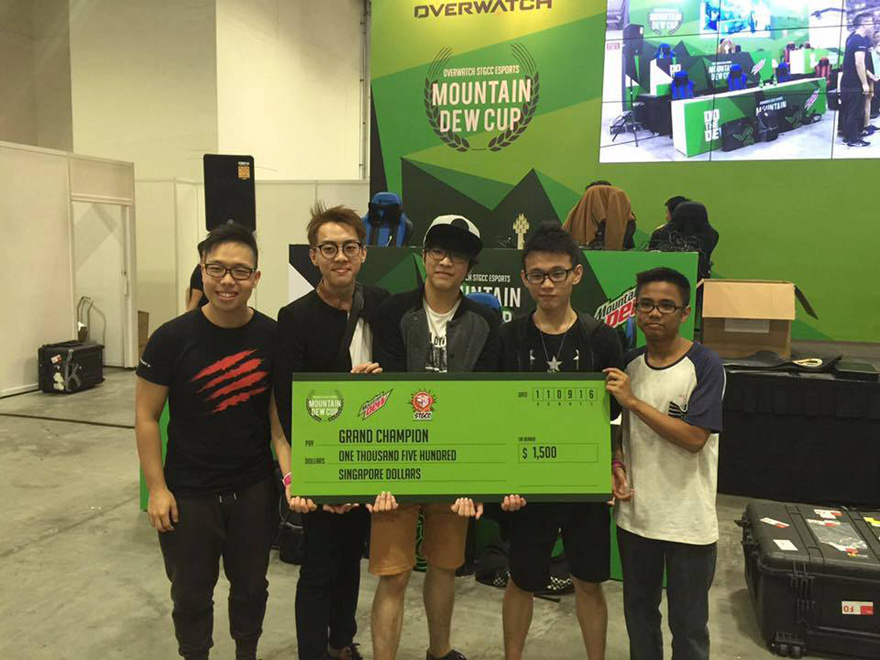
Team Elvellon emerged champions at STGCC’s Overwatch tournament (Photo: STGCC)
Ace Lee, a professional gamer whose gaming team, Elvellon, emerged champions and second runner up at STGCC and GameStart 2016’s Overwatch tournaments, points out other traits that gamers ought to have.
“Experience, ‘game-sense’, being level-headed and a good team player will allow you to reach greater heights,” he said.
Singapore: An esports incubator
To the benefit of those who wish to embark on an esports career, Singapore’s tech infrastructure offers a solid foundation for them to get started.
“Growing up with high speed Internet, we’ve had the multiplayer experience earlier than our counterparts in neighboring countries,” said Ian Ang, co-founder of Secretlab, a maker of gaming chairs. Singapore has the world’s highest peak Internet speed, though South Korea holds its own when it comes to average connection speeds.
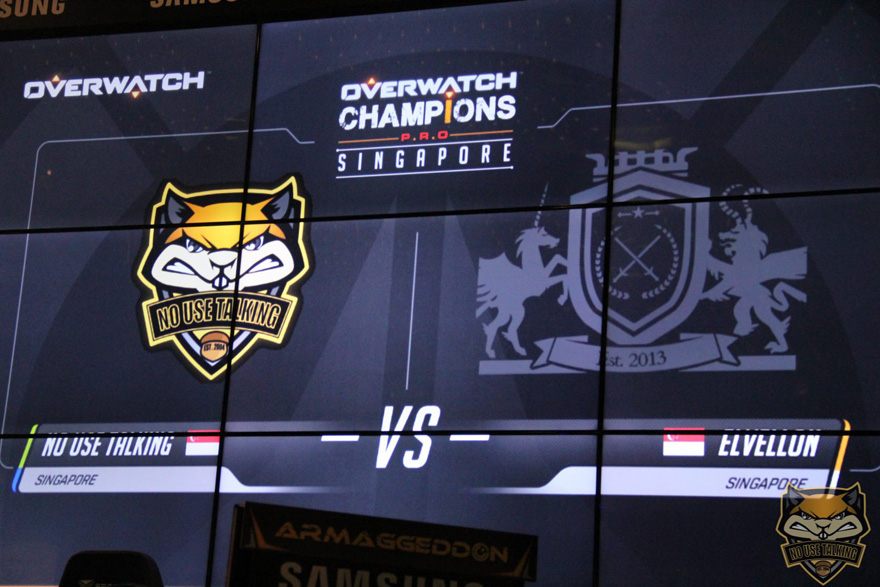
Singapore teams battled it out at GameStart’s Overwatch tournament (Photo: No Use Talking)
Part of the strong gaming culture also seems to stem from one basic aspect — language. “Our proficency in English has allowed us to interact and play with people from different continents,” Ian added. “This is especially true for MMO (Massively Multiplayer Online) games.”
Ask any Overwatch player today, and they’ll tell you that players who can’t speak English find themselves at a disadvantage when communicating with teammates from other parts of the world.
Having exposure to a multitude of gaming platforms has also given Singapore an advantage in its esports endeavors. “Unlike some countries where mobile or PC is the dominant platform, Singapore gamers are pretty well versed with playing games across mobile, PC and console,” said Elicia Lee, founder of GameStart Asia.
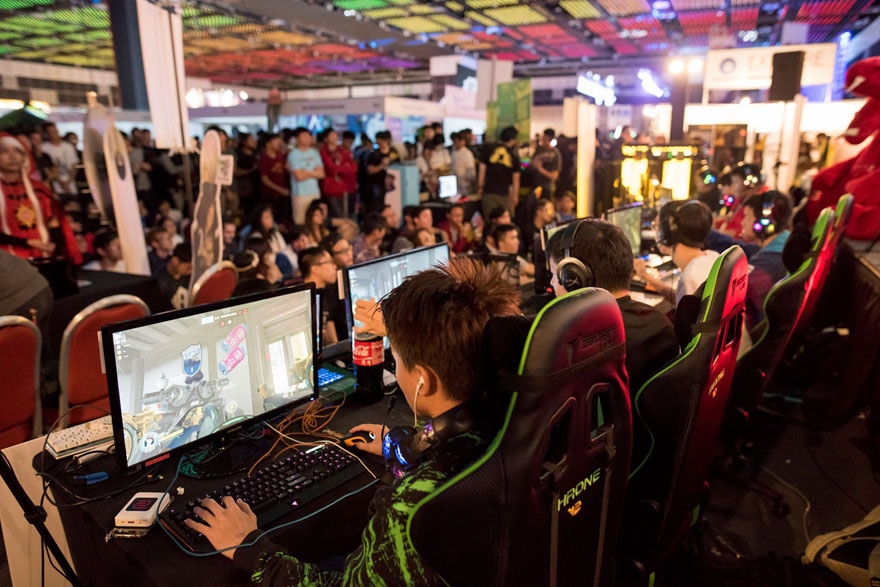
Gamers in Singapore have access to the latest gaming hardware and infrastructure (Photo: GameStart 2016)
From LAN parties to esports tournaments
When it comes to familiarity with competitive play, Singaporean players have already been engaging in small-time gaming competitions since the late 90s, long before the concept of “esports” became popularized. Often held at cybercafes, colloquially known as LAN shops, these competitions came without the bells and whistles of today’s tournaments, but were a strong form of engagement with the gaming community.
As proof of this, professional teams like NUT have stayed in existence since 2004, sweeping accolades in games such as the Battlefield and Call of Duty series, League of Legends and most recently, Overwatch as well.
“Diversifying our organization is reflective of the esports industry as it is ever-changing and growing. Adapting to the constant title-changes is key to maintaining status in this industry,” said Eugene.
But the group that has taken Singapore’s eSports scene by storm most recently is Team Faceless, a five-man line-up who specialize in Dota 2, a multiplayer online battle arena video game.
Members live and train together, just like what many overseas teams do. The benefits include greater teamwork and gameplay synergy, traits that are necessary to conquer a game like Dota 2.
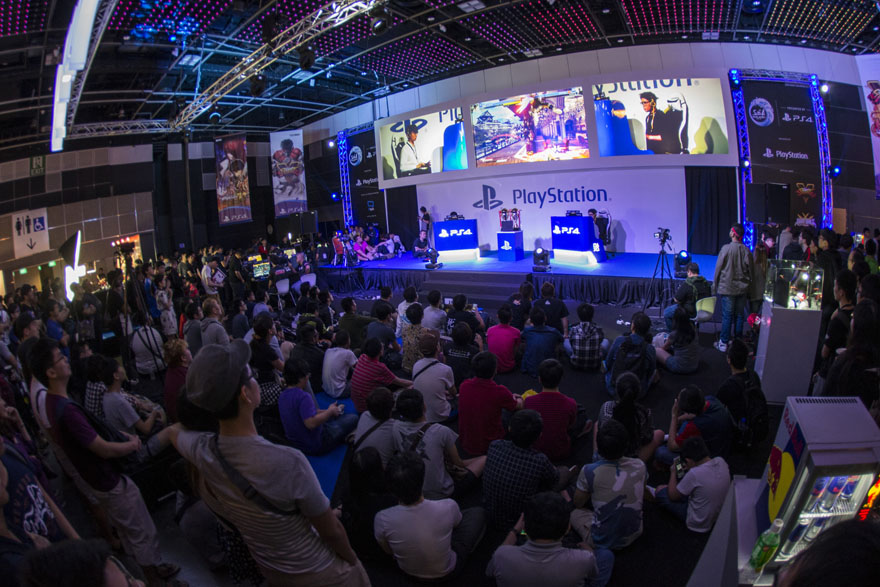
eSports events are widely attended and streamed on platforms like Twitch and YouTube (Photo: GameStart 2016)
The power of live streaming
The advent of live streaming and commentary has turned gaming into a spectator sport, much like how soccer is enjoyed on TV. But where the art of kicking a football cannot be mastered through a screen, live streaming has allowed gamers to learn from the pros and emulate their strategies.
Gone are the days where gamers had to be in close physical proximity with others in order to watch a match; live streams make gameplay styles open for all to see.
“Live streaming has created an entire gaming entertainment ecosystem worth billions of dollars in a short span of few years,” said Ian. “Players feel a lot more connected to their fans, and information is also shared more easily – the average skill level of gaming has gone up tremendously as a result of this.”
Former gamers make their comeback
The increasing popularity of esports has also attracted some of the old guard to make their return. Ace, for instance, used to take part in small-scale Counterstrike tournaments from as early as 2000. After taking a hiatus to focus on his career, the 28-year-old made a successful comeback this year.
“I moved on to more important pursuits until a suitable game and the right opportunities presented themselves,” he said. “While I’m always gaming as a hobby, Overwatch was attractive enough for me to pursue it at a higher level due to its wide appeal and great competitive support.”
eSports career — is it for you?
Still, the golden question remains — just how viable is esports as a career choice? A quick check on the prize money shows that while large-scale tournaments have prize pools in the hundreds of thousands, local competitions are still in their infancy stages and offer winnings in the low four-digit range.
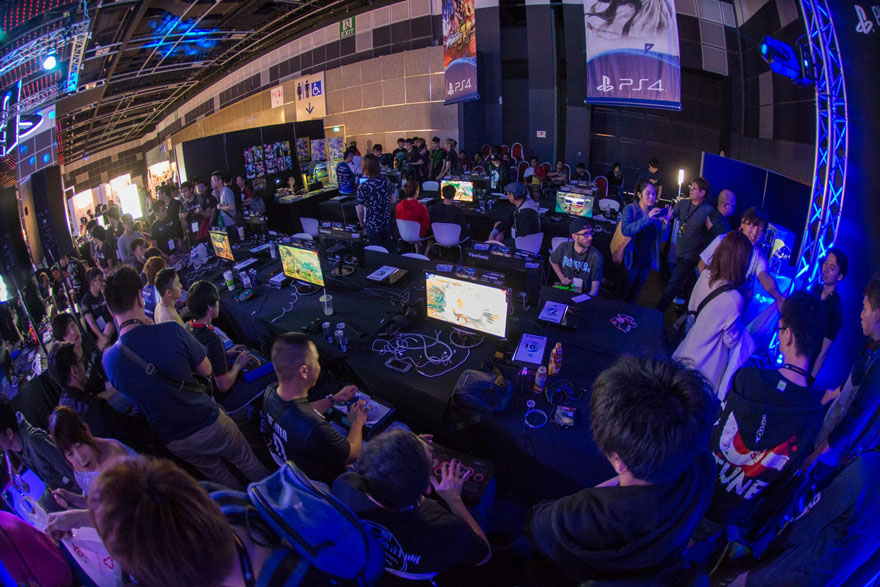
With enough sponsorship and support, local eSports tournaments are capable of matching their global equivalents (Photo: GameStart 2016)
Despite the disparity, local competitions are stepping stones to greater achievements and a surefire way for talents to be spotted. “We’ve always been an organization keen on scouting talents in the community, whether from local gamers that we know or from players we meet online,” said Eugene. “Our organization is always expanding and evolving, we’re always looking to diversify our teams, to develop potential players into competent esport athletes.”
In fact, those in the industry claim that esports has yet to reach maturity and prize pools are set to increase sooner than you think.
“Game publishers and sponsors have started to realize the benefit and potential of backing and sponsoring esports, and that in turn is slowly turning an esports career into something truly viable, and no longer just a dream for players,” said Elicia. “This is pretty similar to how sponsorships work in the sports world, which is fantastic.”
Two days ago, Blizzard announced the launch of its very own Overwatch League that will be introduced in 2017. The League aims to raise the stakes of competitive play of Overwatch such that players can also make a career out of playing the game.
Having seen the steady growth of Singapore’s esports scene, Eugene still feels that more can be done. “It’s definitely a step in the right direction, but investment in a professional league with organized ranking systems, dedicated coverage such as streamed matches, and a centralized network like a forum; would be beneficial for the scene as a whole,” he said.
Read More: Nacon and Razer Reveal New Controllers for the PS4
TAGS
Tags:







